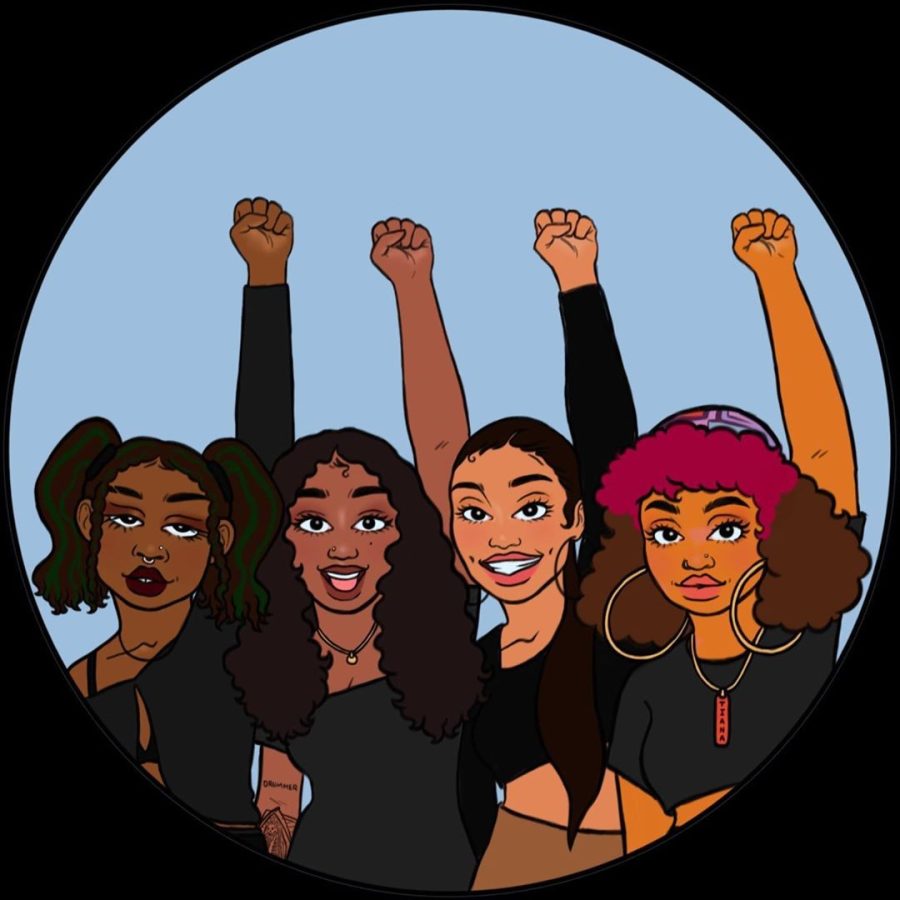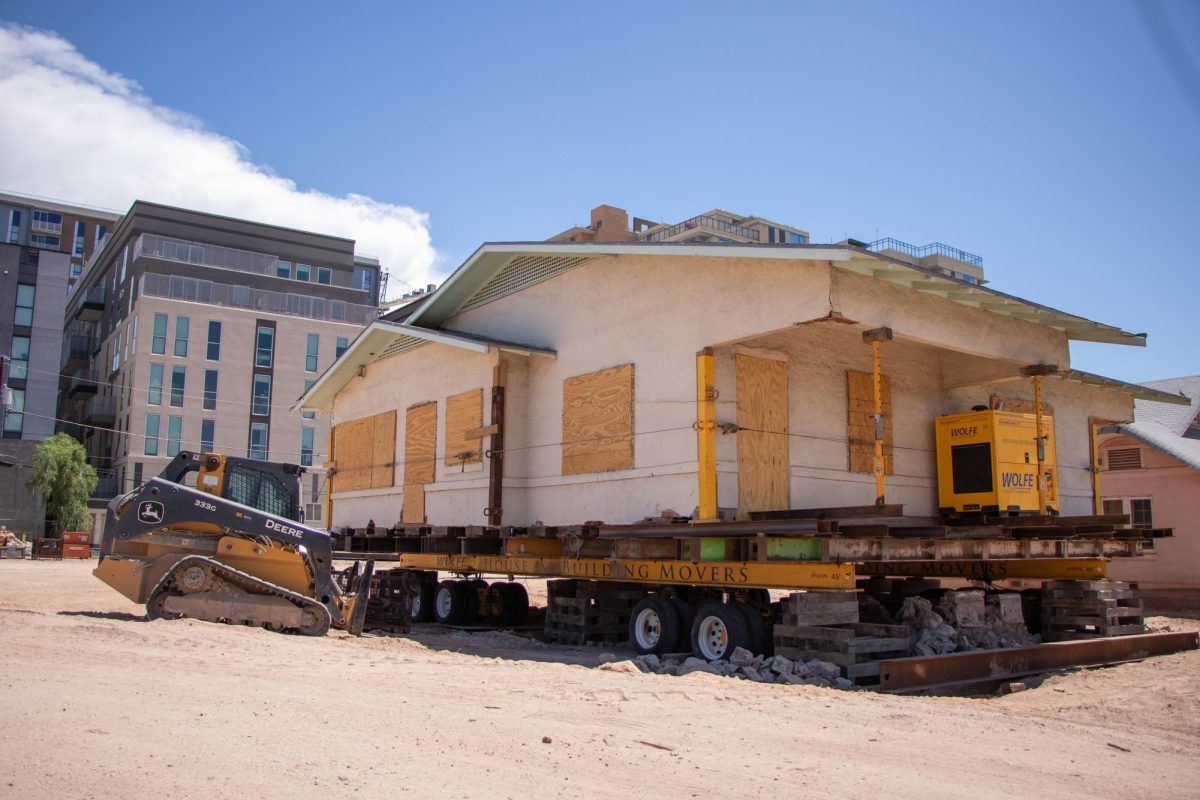This is the first installment of Selena Kuikahi’s “ART IS ACTIVISM” series. Read parts two and three on the Daily Wildcat website.
There are many lanes of action to take when striving for change. Protesting, organizing, mutual aid, art, and so on are interconnected in the world of activism. Art is a form of activism in itself — it has the power to counteract and transcend injustice by providing different perspectives and encouraging peace. Through an array of mediums, its inherently emotional makeup is capable of connecting and motivating people to action.
A group of four young women have successfully linked the lanes of activist work together through education on social media, rallies and in their event Juneteenth: Institutionalized. Tiana McDaniel, Mariah Barnett, Jasmine Drummer and Jovanna Conde are the founders of March 4 Justice Tucson, an organization that has changed the way Tucson celebrates and advocates for the Black community.
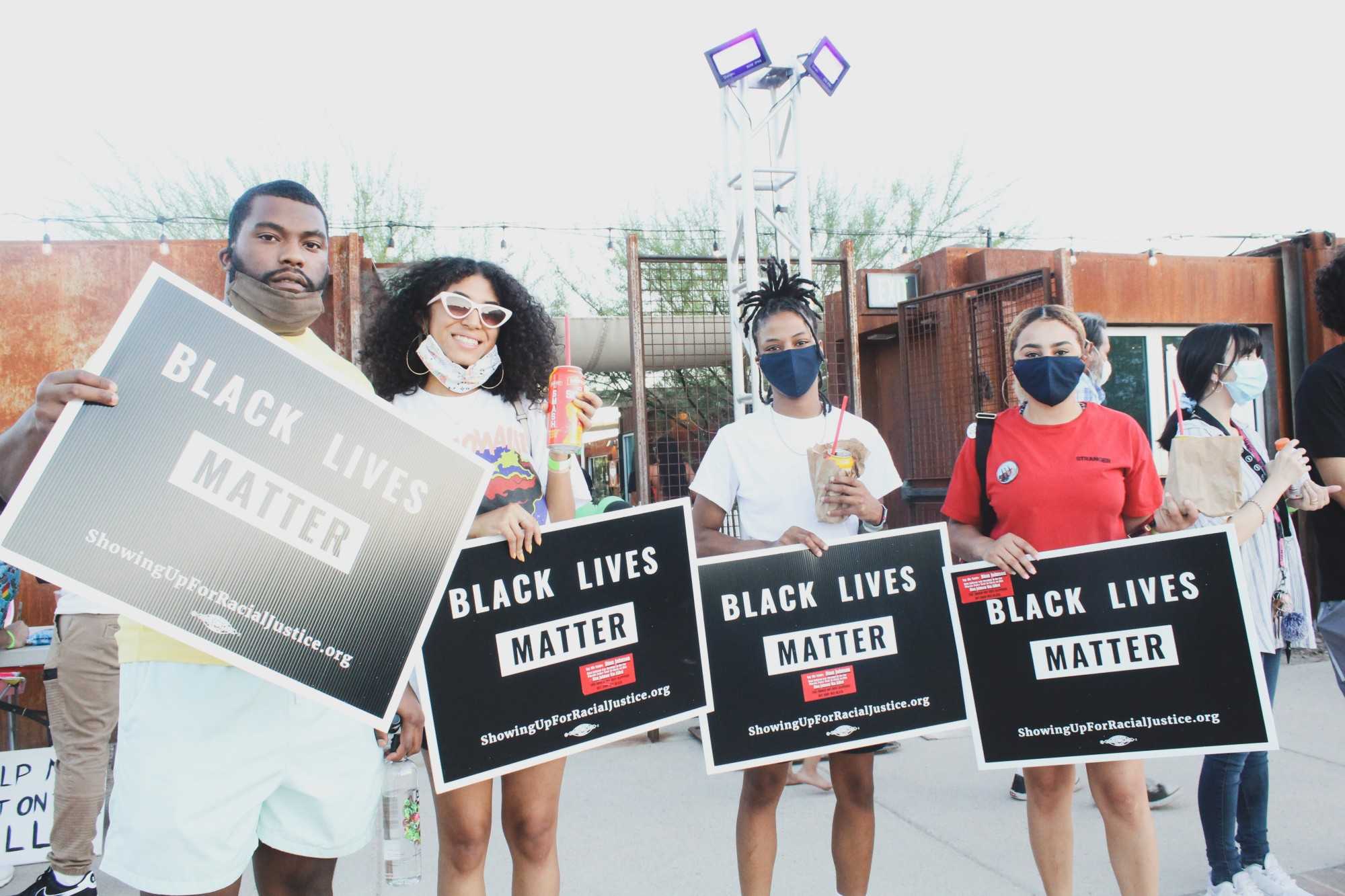
March 4 Justice Tucson’s origin story is familiar to that of other small-town groups like it, starting with the recognition of space and action that needed to be made. Jasmine Drummer and Mariah Barnett had been invited to speak at a protest in Downtown Tucson in May.
Drummer recounted looking at the organizers’ social media page, seeing that “they were speaking on Black issues as non-Black people, which is very inappropriate.” The group was making statements against rioting and looting in regard to the protests that had ensued before that across the country.
“We felt like, it’s not [their] place to be speaking for us,” Barnett said. “You’re not a Black person so will never ever get to decide how Black people react to the things people have done to us.”
The duo saw the need for representation and leadership that reflected the best interest of their community. Although the two did walk in the protest that evening, they decided to move forward with planning a protest themselves. The March 4 Justice Facebook page was then created and their organizing process began. Along with co-founders Jovanna Conde and Tiana McDaniel, the four created Rally Against Police Brutality — hosted on June 3 on the University of Arizona Mall — and, most recently, the Juneteenth: Institutionalized event.

It was very important for the March 4 Justice Tucson team to incorporate creatives and their art into the event.
“Art is a very big part of Black culture,” Drummer said. “Art is what we used and still use today as a form of activism. Back in the day, Black folks were silenced. Black folks would use art to voice their pain, their rage, their emotions. So, bringing that back to the event was [all about] the origin of Black art and Black history.”
Local artists such as TrippBoi, Nicky David Cobham-Morgese and HBK Wreezy showcased their talents on the MSA Annex stage.
McDaniel explained their vision for Juneteenth: Institutionalized, stating that their “whole goal was to educate people about Juneteenth and about Black history since it’s so misconstrued, and to elevate Black artists and Black voices.”
Juneteenth is celebrated all over the world and honors the rich history and culture of the Black community. Celebration is a statement in the same way marching can be. The four young women sought out to create a safe, expressive space free of censorship or apology.
“As long as we’ve been creating art, our art has been getting stolen and gentrified,” Barnett said. “It’s really important to give Black artists a platform because so many times they’re not given [that], then people think that it didn’t originate there when really most things in this country, in this world originated from Black people.”
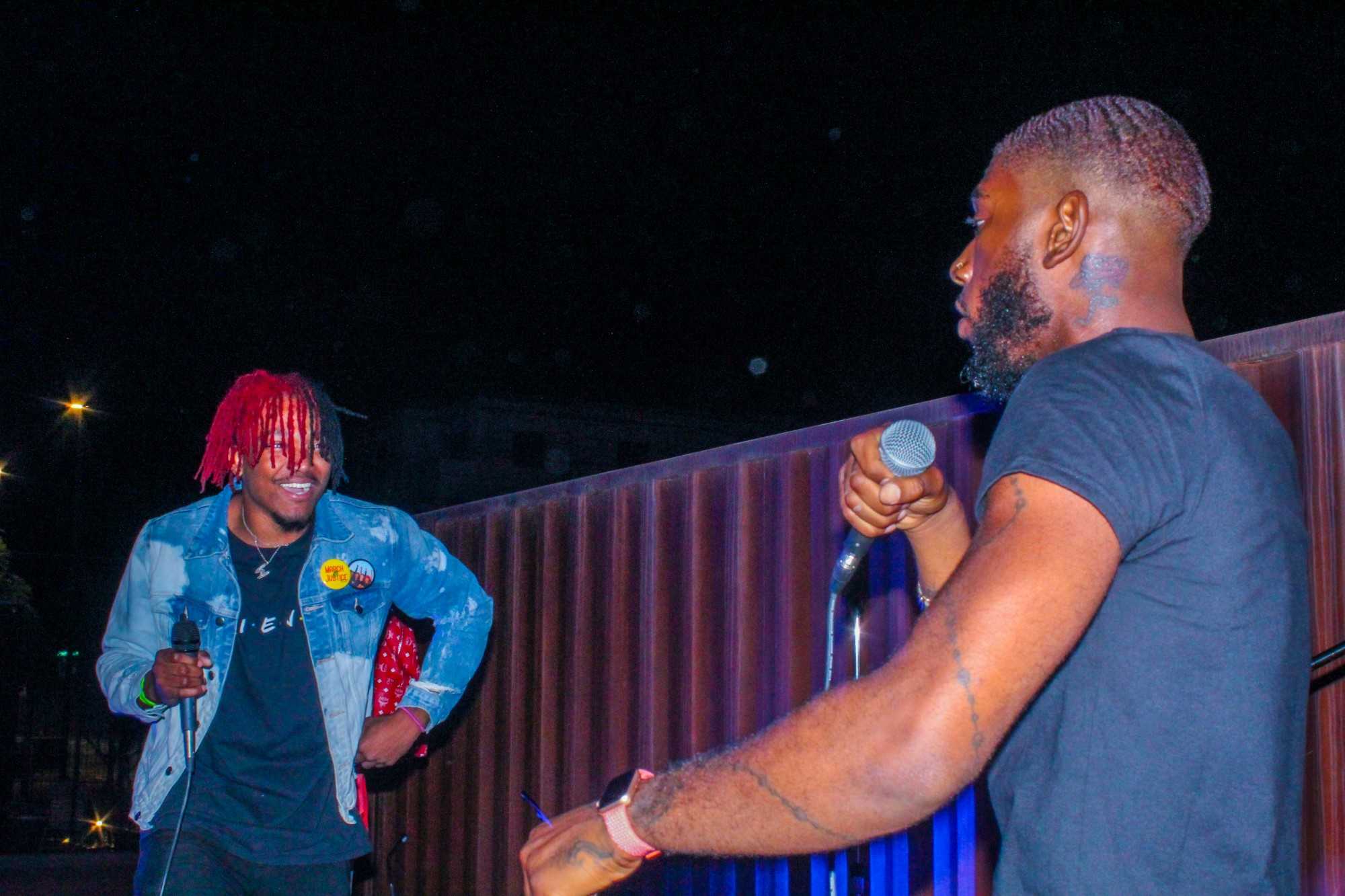
Conde spoke on the individual and communal importance of emotional expression. “[In] coming from a community that has been through so much, you need that outlet to stay in tact and be grounded in something,” she said. “Art not only contributes to our identity but plays into our health, our mental health.”
McDaniel went on to mention how every business at the event was a Black owned business. In recognizing that Black art is often capitalized on by non-Black people, the importance of bringing in revenue for Black artists and businesses was also a key facet of the event. “We had [artists] selling their prints for the very first time and making a profit off to it,” she explained.
“As young people, we can bring fresh ideas to the table,” Drummer said. “At the Juneteenth event, we featured a Black-owned dispensary.”
The thoughtful inclusion of businesses such as PurpleMed Healing Center was not only in support of Black business owners, but also a commentary on racial injustice in the legal system.
“It ties into mass incarceration, ” says Drummer. “We have so many of our Black brothers and sisters in jail right now for what, maybe three grams of weed? That was important to us. We brought so many new things to the table.”
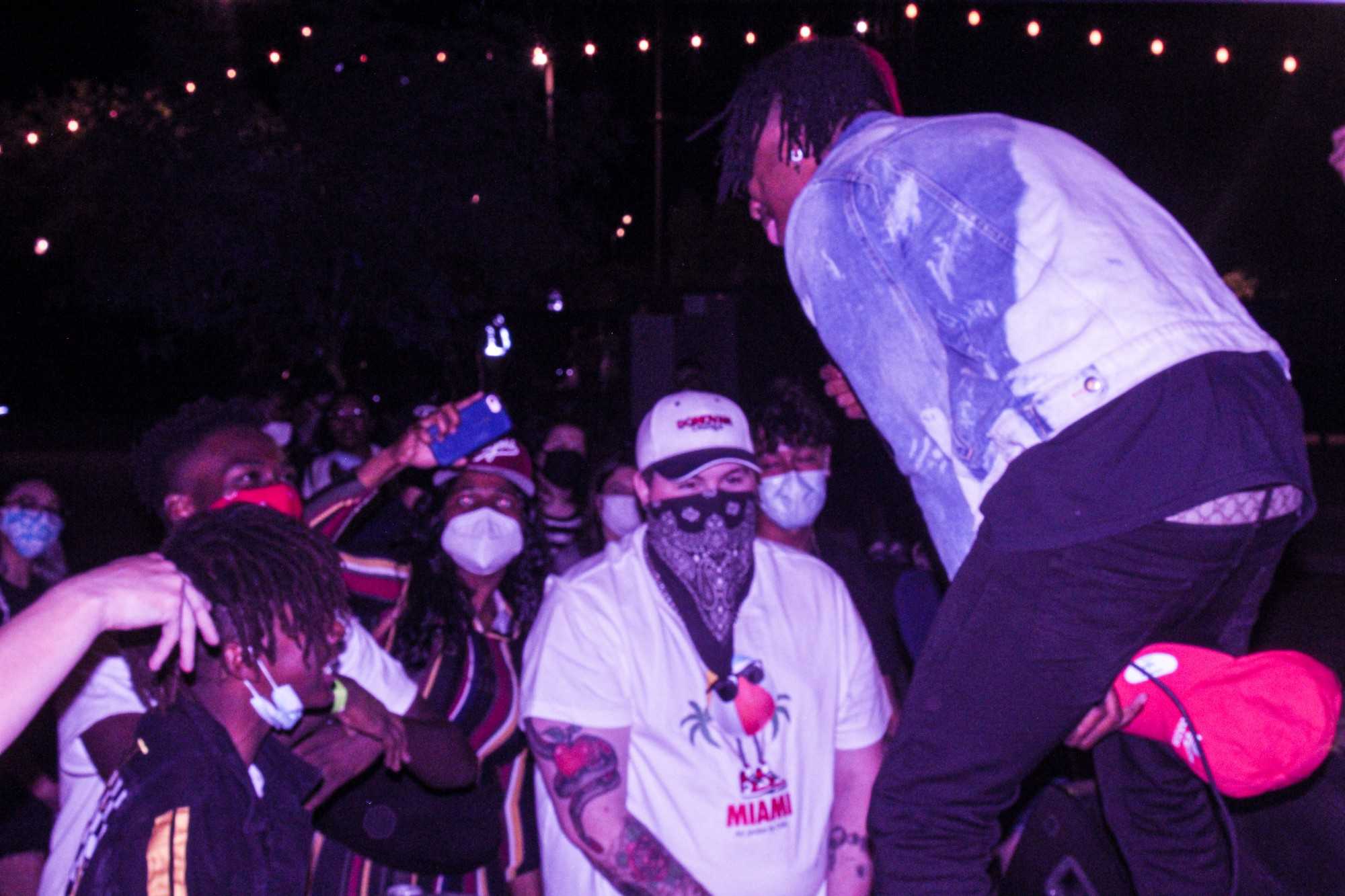
Juneteenth: Institutionalized successfully incorporated Black businesses, artists and celebration, as well as made a statement against the mass amounts of injustice that take place locally and nationally. By bringing this caliber of celebration to Tucson, the organization simultaneously proved that there is still ample work to be done even in the seemingly bluest of cities.
“A lot of people use being in a place like Tucson as a scapegoat, as if [injustice and racism] doesn’t happen here,” McDaniel said. “People try to say that Tucson is a small liberal town, when in reality Tucson is an extremely racist city. We’re lucky that we’re blue in certain aspects, but there is still a lot more work to do. It’s important to realize that everything is interconnected, we’re all fighting the same fight.”
Conde expanded on the concept of small-town organizing, saying that “The reason we need activism in small places is for people to actually know that their voices are worthy and that they have a role in this society.”
“A lot of times, people think that there is no position for them and they have to abide,” Conde said. “Reminding people in these small towns that they are just as important and liberating them allows there to be change.”
RELATED: Black Voices of Tucson Episode 2.3: March 4 Justice Tucson
McDaniel reminded us that their ability to accomplish the amount of work that they have comes from a place of passion and love.
“It’s important to remember that it’s coming from us and our hearts and what we are passionate about,” she said. “We’re doing this as young black women and doing this exactly how we want to do this. We’re representing nothing but ourselves and our people.”
By placing an emphasis on Black art and artists, March 4 Justice Tucson offered a way for creatives to celebrate their own brilliance, and for community members to appreciate the brilliance of the people around them. They reaffirmed the fact that art and celebration is activism in itself.
Follow Selena Kuikahi on Twitter



